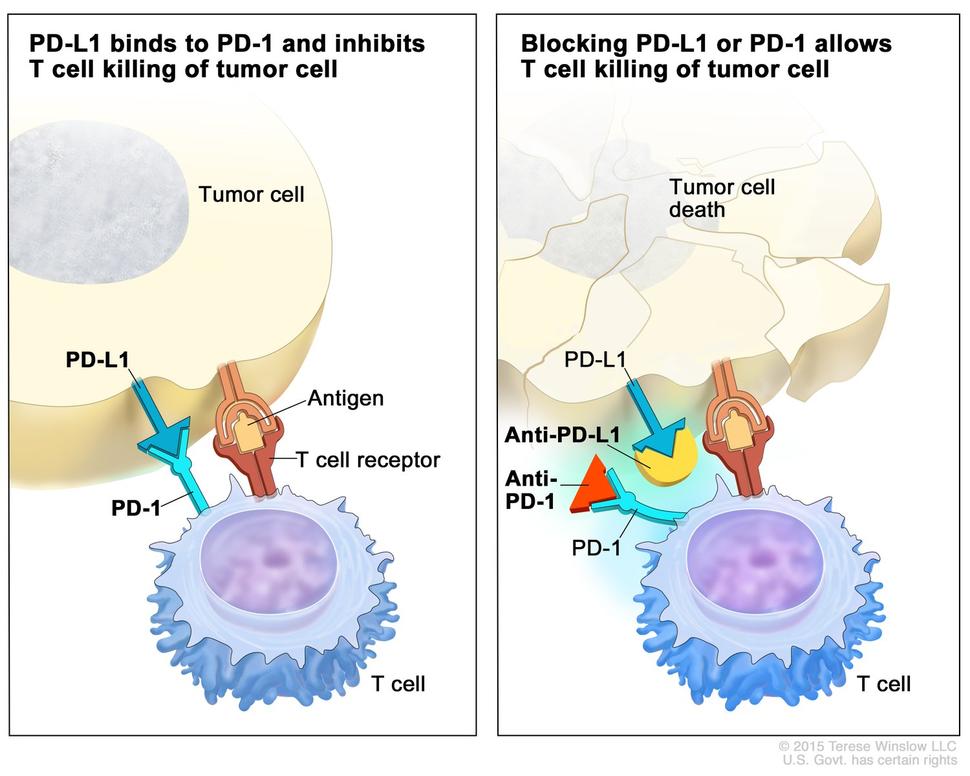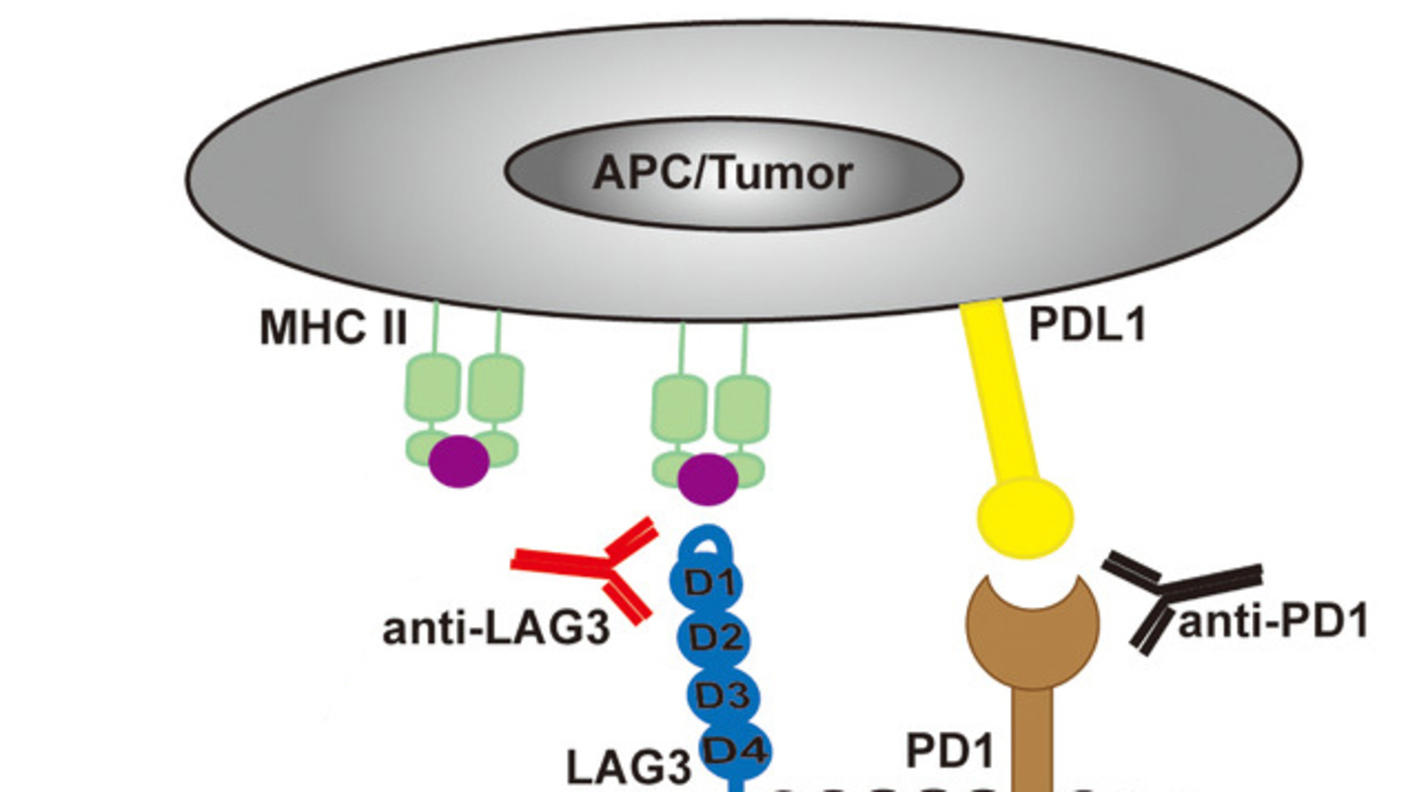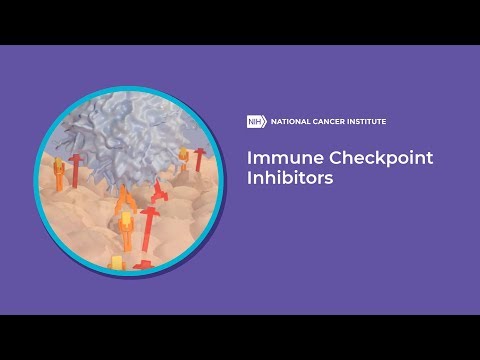How do immune checkpoint inhibitors work against cancer?
Immune checkpoints are a normal part of the immune system. Their role is to prevent an immune response from being so strong that it destroys healthy cells in the body.
Immune checkpoints engage when proteins on the surface of immune cells called T cells recognize and bind to partner proteins on other cells, such as some tumor cells. These proteins are called immune checkpoint proteins. When the checkpoint and partner proteins bind together, they send an “off” signal to the T cells. This can prevent the immune system from destroying the cancer.
Immunotherapy drugs called immune checkpoint inhibitors work by blocking checkpoint proteins from binding with their partner proteins. This prevents the “off” signal from being sent, allowing the T cells to kill cancer cells.
One such drug acts against a checkpoint protein called CTLA-4. Other immune checkpoint inhibitors act against a checkpoint protein called PD-1 or its partner protein PD-L1. Some tumors turn down the T cell response by producing lots of PD-L1.
Which cancers are treated with immune checkpoint inhibitors?
Immune checkpoint inhibitors are approved to treat some people with a variety of
cancer types, including:
- breast cancer
- bladder cancer
- cervical cancer
- colon cancer
- head and neck cancer
- Hodgkin lymphoma
- liver cancer
- lung cancer
- renal cell cancer (a type of kidney cancer)
- skin cancer, including melanoma
- stomach cancer
- rectal cancer
- any solid tumor that is not able to repair errors in its DNA that occur when the DNA is copied
What side effects are caused by immune checkpoint inhibitors?
Immune checkpoint inhibitors can cause side effects that affect people in different ways. The side effects you may have and how they make you feel will depend on how healthy you are before treatment, your type of cancer, how advanced it is, the type of immune checkpoint inhibitor you are receiving, and the dose.
Doctors and nurses cannot know for sure when or if side effects will occur or how serious they will be. So, it is important to know which signs to look for and what to do if they occur.
Common side effects of immune checkpoint inhibitors include:
Rarer side effects of immune checkpoint inhibitors can include widespread inflammation. Depending on the organ of your body that is affected, inflammation can lead to:
- changes in skin color, rash, and feeling itchy, caused by skin inflammation
- cough and chest pains, caused by inflammation in the lungs
- belly pain and diarrhea, caused by inflammation in the colon
- diabetes, caused by inflammation in the pancreas
- hepatitis (inflammation of the liver)
- hypophysitis (inflammation of the pituitary gland)
- myocarditis (inflammation of the heart muscle)
- nephritis (inflammation of the kidney) and impaired kidney function
- overactive or underactive thyroid
- nervous system problems such as muscle weakness, numbness, and trouble breathing
Learn more about organ inflammation and immunotherapy.


